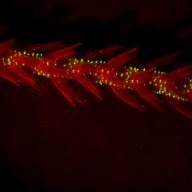 Talk to your doctor about your family history.
Talk to your doctor about your family history.
Credit: Metro File
When it comes to colorectal cancer — which comprises colon cancer and rectal cancer — not all tumors are created equal. As with new developments in cancer in general, the big news in colorectal cancer treatment is genetic sequencing: defining the biology of a tumor and tailoring targeted treatment, rather than going by the old “one pill fits all” application.
“Precision medicine is the buzzword,” says Dr. Rona Yaeger, a colorectal cancer researcher for the American Cancer Society. “Already there are new drugs in clinical trials that will come on the market soon for new targeted treatments that act on particular tumor types.”
With precision medicine and improved surgery techniques, doctors are able to more accurately target tumors. The result is less treatment for colorectal cancer patients, who previously might have had to have endured unnecessary radiation or chemotherapy. That’s particularly true with tumors found in the rectum, which are typically difficult to treat.
“We’re now understanding that we’ve been over-treating and we don’t always need all that chemotherapy and radiation,” explains Yaeger. “Radiation, in particular, is something we want to avoid if possible, especially in young people, because one of the possible side effects is infertility.”
Young people? Generally, colorectal cancer is thought of as an older person’s disease. Yaeger tells Metro that the average age of colorectal cancer patients is 70, but adds that the incidence of colon cancer is increasing in 25-50 year olds.
“So far, the evidence is observational, but that’s what we’re seeing,” she says. “The problem is that in younger people, colorectal cancer is more likely to be advanced. Young people do not seek treatment until they present with symptoms, such as bloody stool, or a change in bowel movement. With young people, it’s beyond a polyp.”
Polyps are pre-cancerous ruptures in the bowel wall that are found during colonoscopy exams and simply removed. Colonoscopies — for which patients are asleep during and head home from treatment that same day — are an effective tool in preventing cancer. They’re usually given at age 50 or above, unless if there’s family history of colorectal cancer. “It’s still our best tool for preventing fatalities overall,” says Yaeger.
Despite all the advances in treatment, prevention for anyone, particularly younger people, is still paramount. Two ways to slash your risk? You’ve heard them before: a healthy (high-fiber!) diet, and regular exercise.
“Colorectal cancer in young people, and in general, continues to be a problem in the developed world’s diet of refined grains. Eating red meat and processed food is known to compound the problem. A large Body Mass Index is known to affect all cancers, including colorectal,” says Yaeger. “The more fit you are, the more you decrease your risk.”
















